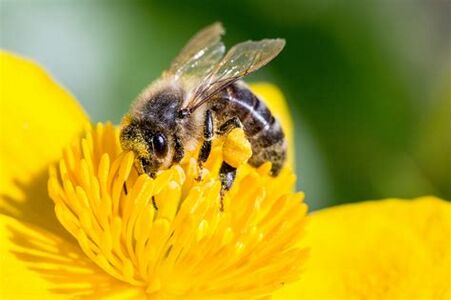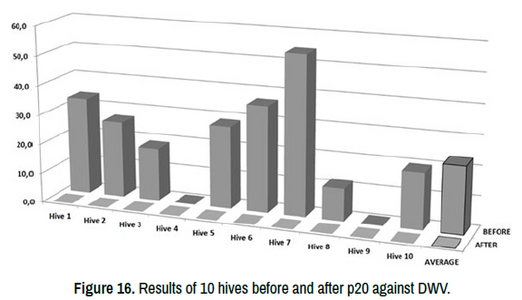Study of Survival of Bees with Deformed Wing Virus and Nosemosis

The global decline of bee populations represents a significant environmental concern with profound implications for biodiversity and food security. Bees are integral to the pollination of numerous agricultural crops and wild flora, facilitating the production of a wide array of fruits, vegetables, and nuts. Research indicates that approximately one-third of the food consumed by humans is dependent on pollination, with bees being responsible for a substantial proportion of this crucial ecological service. The precipitous drop in bee populations can be attributed to multiple factors, including habitat destruction, pesticide exposure, climate change, and the proliferation of pathogens. Notably, recent studies have demonstrated that a novel formulation of chlorine dioxide (ClO2) has yielded remarkable outcomes in enhancing bee health and fortifying their resilience against diseases. The conservation of these essential pollinators is imperative not only for sustaining healthy ecosystems but also for ensuring the viability of agricultural systems and food security for future generations. Comprehensive strategies aimed at habitat preservation, reduction of harmful pesticide applications, and increased awareness of the critical role bees play in our environment are essential to mitigate this urgent issue.
Veterinary Science & Technology
Determination of the Survival of Bees with Deformed Wing Virus and Nosemosis using a New Oxalate- Based Compound (p20) in 20 Hives Located in El Garraf, Barcelona, Spain. Proof of Concept
ISSN: 2157-7579
Francisco Lucas1*, Eduardo Insignares-Carrione2, B. Bolano3 and A. Kalcker4
*Correspondence: Francisco Lucas, Director of Veterinary Research for LVWG Liechtensteiner Verein für Wissenschaft und Gesundhei, Liechtenstein, Switzerland, Email:
Author information
Abstract

Introduction: There is a worldwide bee colony collapse, a syndrome characterized mainly by the disappearance of worker bees. It is caused by parasites such as those belonging to the genus Varroa- vector of Deformed Wing Virus (DWV) and other pathogens that affect bees, such as Nosema ceranae. The objective of this research was to evaluate the efficacy and safety of a new mixture of substances administered as feed to bees called p20, with the purpose of increasing the survival of bees affected by DWV and Nosema spp and to verify how p20 affected the presence of these pathogens in the hives.
Materials and methods: A prospective descriptive longitudinal observational study of bees with deformed wing virus and Nosema spp in hives in Garraf, Barcelona, Spain from July 2022 to July 2023 was carried out. The research was carried out on A. mellifera species, aged between 20 and 40 days of life, of female sex, in the subspecies Iberiensis, with physiological state of adult foragers, in 20 bees per hive, examining a total of 200 bees, 20 per group. Solution p20 was administered as feed, which is a mixture of sugars with syrup of glycosylated sugars and 4.6% (0.25ml) oxalic acid and sodium chlorite 28% (0.25ml) in 350 cc bags per hive. Three cycles of one bag per week were administered and consumed by the hives.
Results: Our findings suggest that hives with Nosema and deformed wings that were treated with a blend of oxalic acid in activated glycolytic sodium chlorite solution called p20 showed an improvement in survival rate and a significant decrease in the presence of Nosema spp. and deformed wings compared to previous winter seasons when we did not apply the substance under study. The efficacy of the p20 solution against Nosema spp. for four (4) weeks with three (3) treatments was 90.4% in total and stopped completely the new hatchings of bees with deformed wings by 100%.
